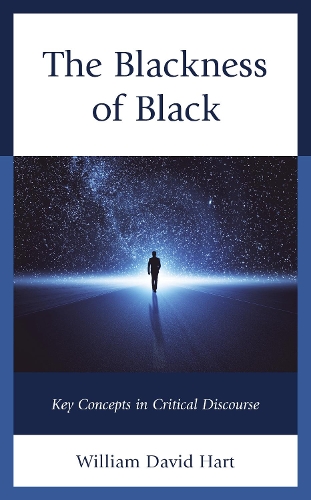
The Blackness of Black: Key Concepts in Critical Discourse
(Paperback)
Publishing Details
The Blackness of Black: Key Concepts in Critical Discourse
By (Author) William David Hart
Bloomsbury Publishing PLC
Lexington Books
23rd May 2022
United States
Classifications
Professional and Scholarly
Non Fiction
Social and cultural history
305.8001
Physical Properties
Paperback
262
Width 154mm, Height 219mm, Spine 19mm
399g
Description
This book explores the relations among blackness, antiblackness, and Black people within the discourse of the blackness of black. This critical discourse developed during the last two decades as scholars explored what Saidiya Hartman describes as the afterlife of slavery. Hartmans concept, which argues for a troubling continuity between the status of enslaved and emancipated Black people, is the pivot between discursive tributaries and trajectories. Tributaries of the discourse of the blackness of black comprise five foundational concepts: Frantz Fanons phobogenic blackness, Orlando Pattersons social death, Cedric Robinsons racial capitalism and the black radical tradition, and Hortense Spillers flesh. The book traces three trajectories within the afterlife of slavery: Frank Wildersons Afropessimism, Fred Motens generative blackness, and Calvin Warrens black nihilism. This ensemble of concepts enable us to understand what is at state in how we understand the relations among blackness, antiblackness, and Black people.
Reviews
The discourse on Blackness and Black death and dying has become the substance of Black critical theory, and Hart provides an insightful elucidation and analysis of that discourse. Beginning with Frantz Fanons phobogenic Blackness, Hart explores themes such as the afterlife of slavery, social death, flesh, the wake, paraontology, Afropessimism, Black nihilism, and Blackness as generativity. The book is rich with historical insights into originsthe African slave trade, where slaves were thrown overboard without regard, sundered from roots and family, and seen as without "being." In the afterlife of slavery, the Black man was rendered burdened, though free; encumbered but deprived of land and capital, labeled deficient in manliness and without substantial being. Blackness was seen by the white gaze as criminal, as something to be removed from social space. Hart calls attention to W. E. B. Du Boiss exploration of the lived experience of Black people and the notion of double consciousness, a trope for all considered otheron the other side of the color line. This overview is a rich foundation for understanding why Black lives are viewed as of no matter, without worth, and yet why they must matter. Recommended.
* Choice *William D. Harts The Blackness of Black is a brilliant and accessible introduction to key figures and debates in the field of black studies. Organized according to different terms and tropes within the field afterlife of slavery, flesh, social death, wakeeach chapter in Harts book draws the reader into the rich terrain of black critical theory. At a moment when people reflexively dismiss strands of black thought, such as Afropessimism, Hart offers a generous and nuanced reading of various authors (exploring possibilities and limitations). Without hyperbole, this book will become the primer to any serious discussion or course about contemporary black studies.
-- Joseph Winters, Duke UniversityWilliam Hart courageously elucidates, synthesizes, and analyzes a discourse on blackness that has emerged over the past two decades. Hart calls this discourse the blackness of black. Innovative as always, Hart reveals the inner workings of the blackness of blackgrounded in what Saidiya Hartman describes in Lose Your Mother (2007) as the afterlife of slaveryby exploring the constellation of key concepts he has discerned as giving it unity and life: Negro Phobogenesis (Frantz Fanon); social death (Orlando Patterson); racial capitalism and the Black radical tradition (Cedric Robinson); flesh (Hortense Spillers); the afterlife of slavery (Saidiya Hartman); the wake (Christina Sharpe); Afro-pessimism (Frank Wilderson); blackness as generativity (Fred Moten); paraontology (Nahum Chandler); and black nihilism (Calvin Warren). The Blackness of Black is right on time in our current Covid-19 moment, which continues to reveal the systemic structures that the afterlife builds and rebuilds for black death and dying, and in which a new generation of young black people mount their resistance. Harts work may remain timely for the unforeseeable future, given that the afterlife rebuilds to last. The clarity and ingenuity that The Blackness of Black brings to the discourse on the afterlife of slavery makes Harts work essential reading for anyone who cares about the myriad ways that blackness has been explored by key scholars of this discourse. With this work, Hart counts amongst their ranks.
-- Janine Jones, University of North Carolina GreensboroAuthor Bio
William David Hart is the Margaret W. Harmon Professor of Religious Studies at Macalester College.
